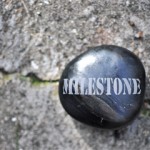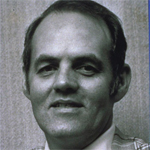Your voice is an essential part of the ACR’s advocacy efforts, and our new Legislative Action Center makes contacting your legislator easier than ever before…

Revenue Cycle Management in Physician Practice Improves with Staff Communication, Training
One month has passed since the U.S. healthcare system overcame a historical milestone with the conversion from billing ICD-9-CM to ICD-10-CM. Although the transition to ICD-10 had a major impact on coding operations, its far-reaching tentacles go beyond coding alone and are deeply rooted in the entire revenue cycle. There is room to criticize the…
2015 ACR/ARHP Annual Meeting Abstracts Now Available
Accepted Annual Meeting abstracts are now available online. Search abstract presentations online or download a PDF of the online 2015 ACR/ARHP Annual Meeting Abstract Supplement. Our online resources center is your single point of access to Annual Meeting program information. View, print or download Annual Meeting publications or access the app.
Rheumatology Fellow Questions Diagnostic Utility of Patient Physical Exam
“Do you seriously want me to stand on my tiptoes?” my gruff 68-year-old patient at the VA Rheumatology Clinic asked, incredulous. “I came with a walker. I think you very well know, doc, that if I get on my tippy-toes, then I’m going to fall flat on my face.” He had a point, one that…

Past President Marlin Shields Reflects on the ARHP’s 50-Year History
As the Association of Rheumatology Health Professionals (ARHP) continues to celebrate its 50th anniversary, The Rheumatologist recently spent time with Charter Member and Past President Marlin N. Shields, RPT, discussing the history of the ARHP and the changes he has seen in rheumatology. One topic that was, and remains, near and dear to him is…

Rheumatology Research Foundation Expands Studies in Rheumatic Diseases Through Career Support
For the past 30 years, the Rheumatology Research Foundation has been an invaluable resource for investigators looking to further their careers and expand essential research into rheumatic diseases. Among the Foundation’s many award recipients is Robert Plenge, MD, PhD. In 2008, Dr. Plenge received a grant from the Foundation to pursue finding a genetic basis…
2015 ACR Guideline for the Treatment of Rheumatoid Arthritis Now Available
The American College of Rheumatology (ACR) announced the availability of its 2015 Guideline for the Treatment of Rheumatoid Arthritis (RA) during the 2015 ACR/ARHP Annual Meeting in San Francisco. An early draft of the recommendations was presented at last year’s meeting in Boston, and the final recommendations are now available on the ACR website. The…
The Lupus Initiative Receives 5-Year CDC Grant
The Centers for Disease Control and Prevention (CDC) has awarded the American College of Rheumatology’s (ACR) The Lupus Initiative (TLI) with a five-year grant to support the development of a national, grassroots program targeting primary care providers, persons with undiagnosed Lupus and rheumatology health care providers. The program will have three components: Immediate dissemination of…
Use of Unspecified Codes in ICD-10: What You Need to Know
The ACR Practice Management and Coding department will periodically update the membership on the new ICD-10 coding guidelines and conventions to assist practices with accurate billing. Our top question during the first week of ICD-10 implementation was on the use of unspecified codes…

Rheumatologists Share Research, Successes at Annual Investigators’ Meeting
“Each project adds new knowledge that brings us a little closer to the cure,” Joan Bathon, MD, of Columbia University Medical Center, says of the Rheumatology Research Foundation’s 8th Annual Investigators’ Meeting in San Diego. Dr. Bathon was one of more than 30 investigators who presented the latest progress on research funded by the Foundation’s…
- « Previous Page
- 1
- …
- 48
- 49
- 50
- 51
- 52
- …
- 135
- Next Page »